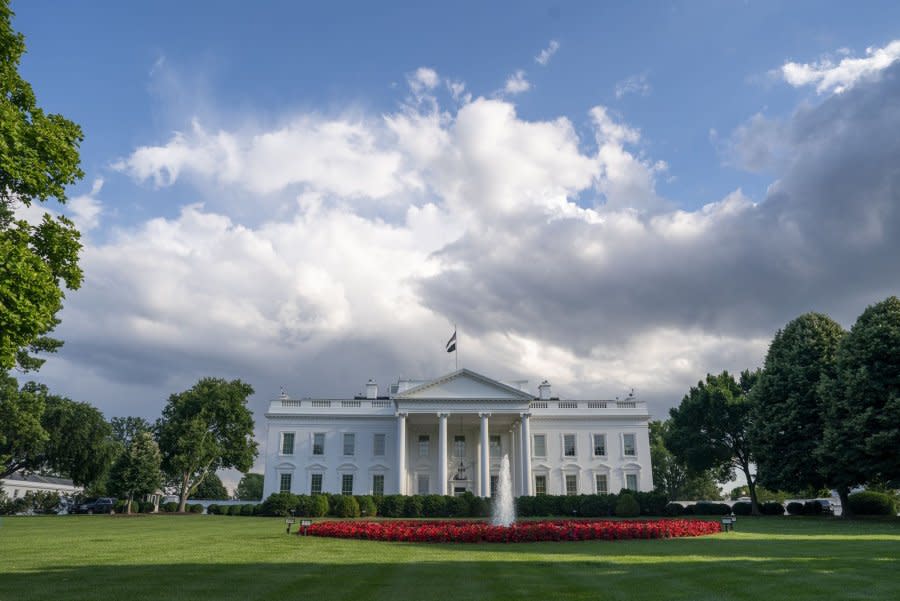Absolute immunity: Absolute catastrophe?

July 10 (UPI) -- The Supreme Court, in a 6-3 decision settling the Trump v. United States case written by Chief Justice John Roberts, ruled that presidents have "absolute immunity" in carrying out all "official" duties. But the Court did not rule on what separates "official" from "unofficial," sending the case back to the appeals court to decide. What nonsense!
Over time, this ruling may rank among the Supreme Court's worst decisions. Dred Scott v. Sanford in 1857 and Plessy v. Ferguson in 1897 ("separate but equal") top that list. That defenders of this ruling on immunity argue all presidents are protected by this case -- for example, it includes Joe Biden -- misses the point. Supposing a president clearly did something illegal in carrying out official duties. Would the president be immune from prosecution?
Let's take an example. A number of Republicans, including two who are allegedly on Donald Trump's short list for vice president, have called for using the U.S. military to eradicate drug lords in Mexico. If Trump wins, what would prevent Trump from carrying out this task as commander-in-chief? He does not need Congressional approval for using military force, provided he conforms with the War Powers Act that requires notifying Congress and sets limits for how long force can be deployed without further approval.
Many Americans would probably agree with this action, much as a majority supported the second Iraq War and the hunt for weapons of mass destruction. The attack on our neighbor to the south and largest trading partner would be considered an act of war. If collateral damage, specifically civilian deaths, occurred, Trump could be prosecuted as a war criminal by the International Criminal Court, an organization the United States has chosen not to join.
But, by the Court's ruling, Trump would be immune. And indeed, if impeachment proceedings were initiated, what would be the grounds and charges? Even starting a war could be argued as an official duty. Immunity would apply.
On the other hand, assume Biden wins in November. What would prevent the president from directing the Department of Justice to use any means to derail Trump and reverse the vote? This is what Trump did in his instructions to the Justice Department and Vice President to challenge the choosing of Electoral College electors. Or if a president were to mandate assassinating a foreign leader as a direct threat to national security, only a presidential executive order prevents that. Would a president be immune?
Further, the status of Iranian nuclear weapons programs is viewed by many as a clear and present danger. What if, based on "perfect" intelligence, a president were convinced that not only did Iran have a nuclear weapon but was prepared to use it on an urgent basis?
What if the only means to eliminate that threat was to use a nuclear weapon that had the explosive power to ensure the destruction of that weapon and the supporting infrastructure? And given the short time frame and the presumed inability of getting a quick supporting Congressional resolution, the president acted unilaterally. For the third time in history a nuclear weapon would be used in anger.
To put additional spin on this scenario, what if so-called "perfect" or "slam dunk" intelligence was wrong as it was in 2003 in Iraq? Does the president still have immunity? While the scenarios are unlimited, does unlimited immunity lead to the potential for unlimited catastrophe?
For argument's sake, had the absolute immunity finding been in place in 1974, would Richard M. Nixon have been forced to resign? Clearly, Nixon's discussions with White House Counsel John Dean had to be "official." And in these circumstances, could Nixon have ordered the Justice Department to carry out a warrantless raid on Watergate and Democratic National Headquarters based on urgent national security needs? In this case, seizure of the so-called threatening material would outweigh gaining a conviction as the case would be overturned for illegal search and seizure.
What this ruling means is that the only lever on presidential misconduct in light of a definition of "official" duties is impeachment and conviction. And when could or would that have happened? If Nixon was protected by this ruling, the grim news delivered by Barry Goldwater and Republican elders that the votes to convict were there would not have happened.
What to do? The next Congress should begin holding joint hearings on this ruling to determine if legislation is needed to define "official" in clear terms and to determine if because of this immunity decision, the president is above the law. But will Congress act?
Harlan Ullman is UPI's Arnaud de Borchgrave Distinguished Columnist, a senior adviser at Washington's Atlantic Council, the prime author of "shock and awe" and author of "The Fifth Horseman and the New MAD: How Massive Attacks of Disruption Became the Looming Existential Danger to a Divided Nation and the World at Large." Follow him @harlankullman. The views and opinions expressed in this commentary are solely those of the author.


